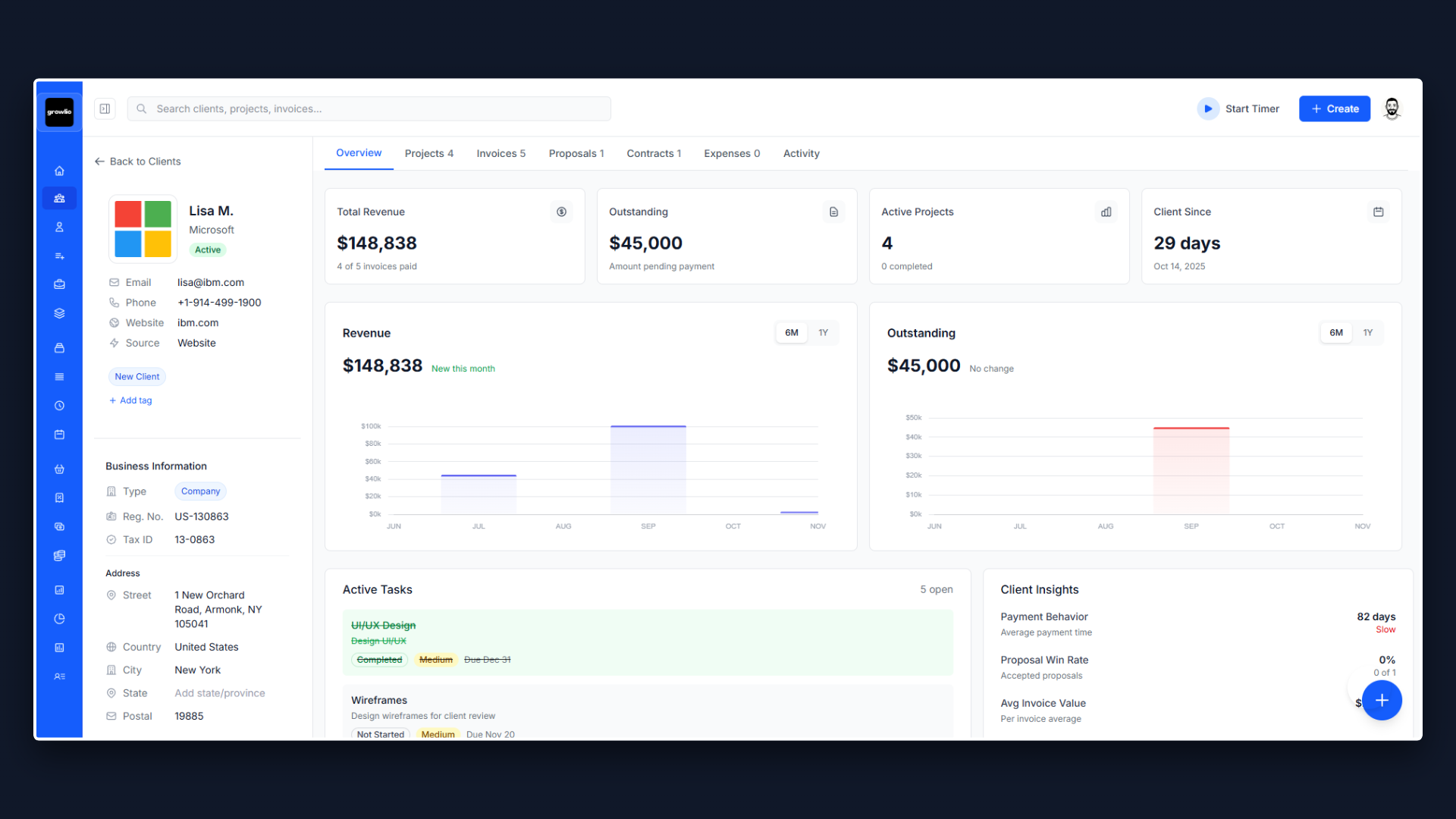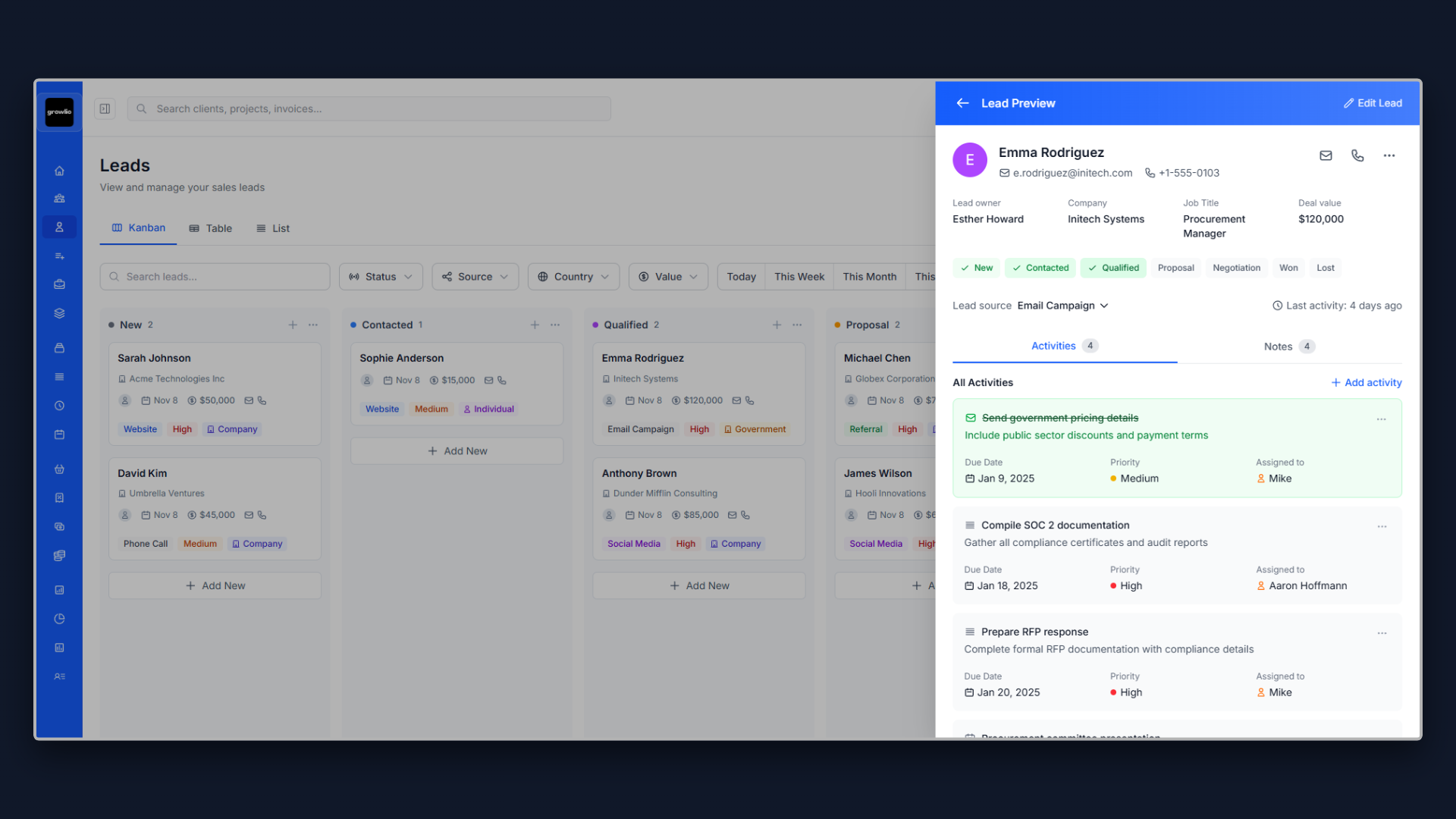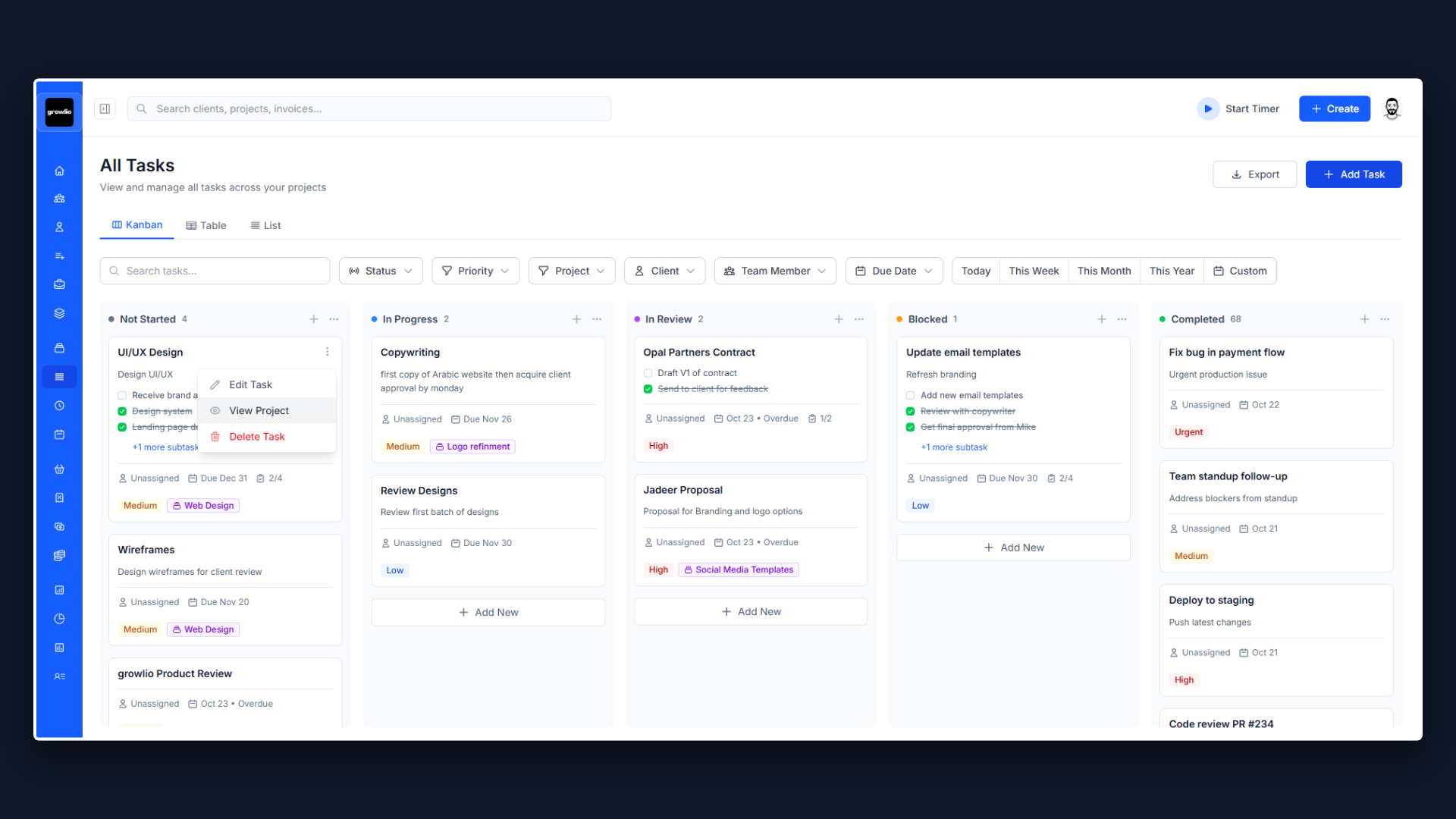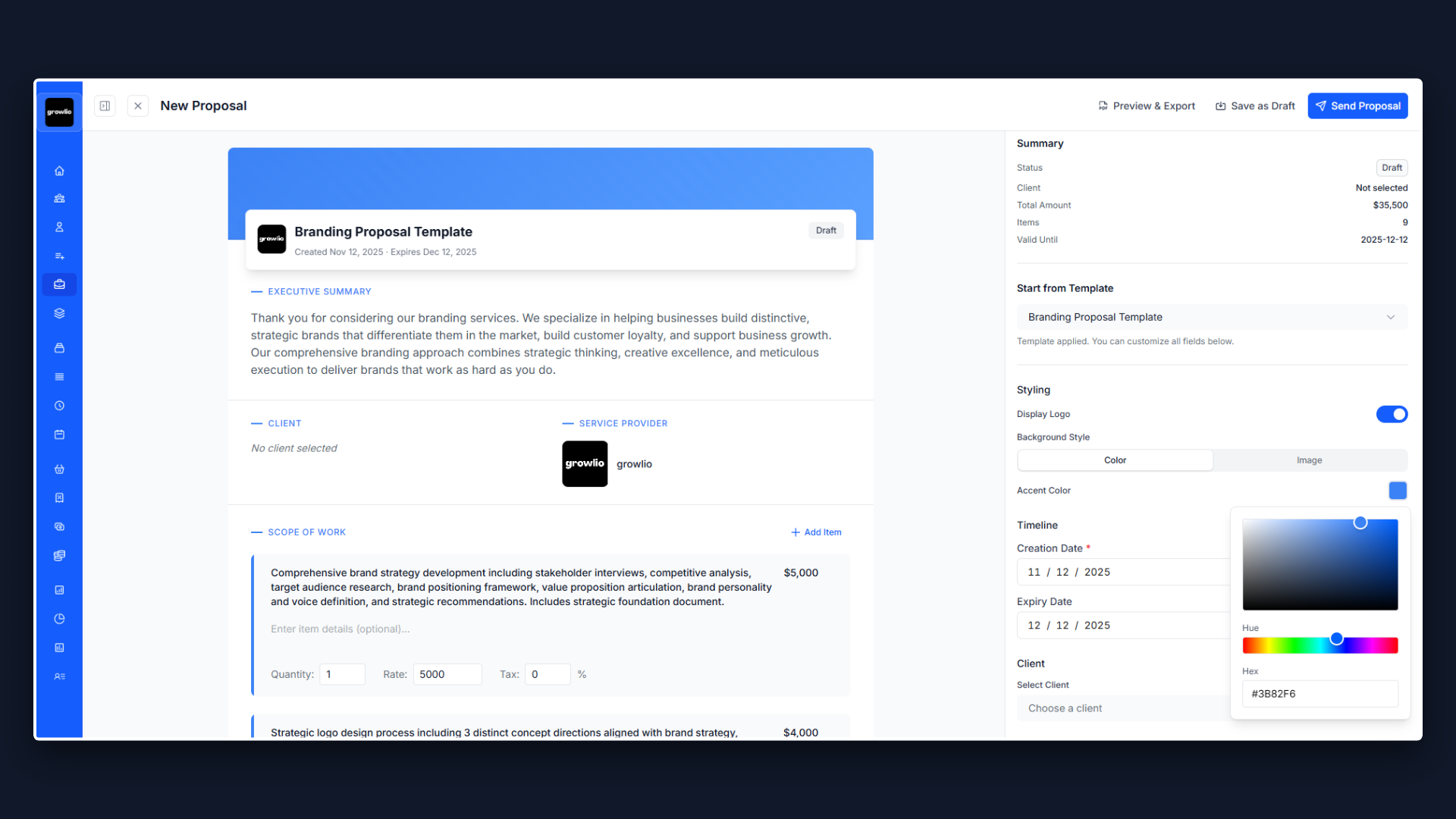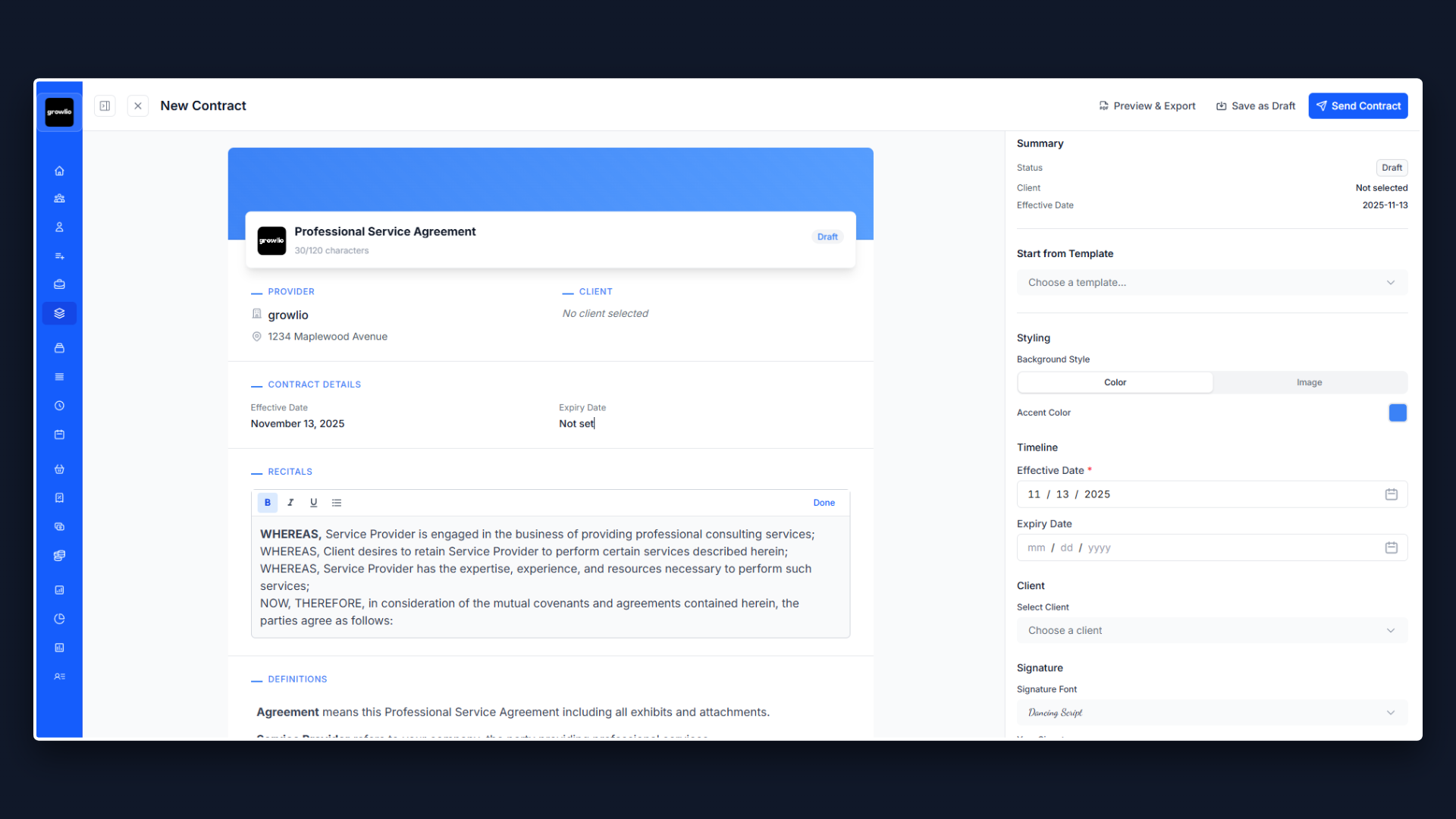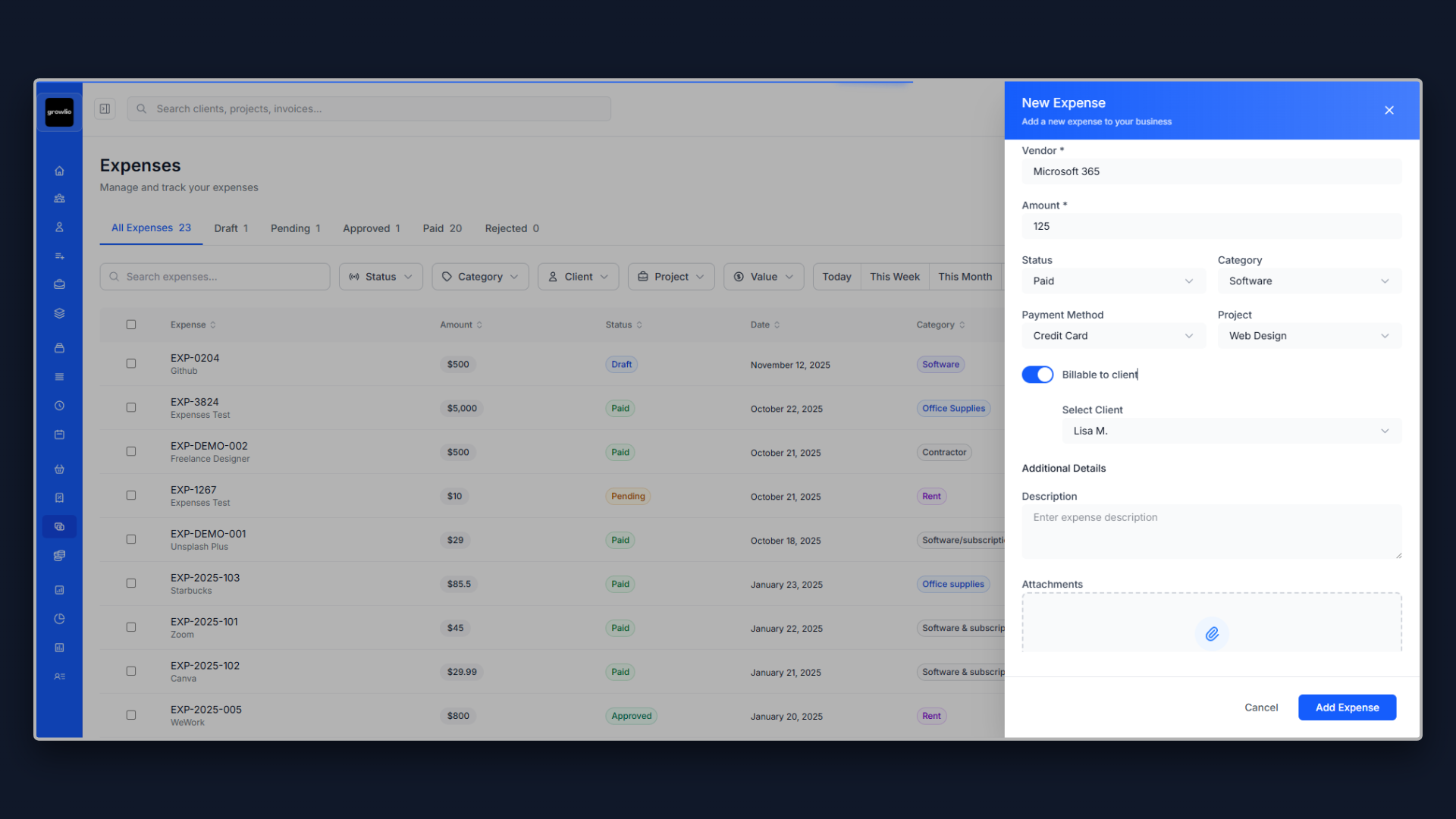Why Your Coaching Proposal Determines Whether Clients Invest in Transformation
In coaching, you are not just selling your time—you are selling transformation, accountability, and the possibility of a better future. Before a potential client invests thousands of dollars and months of their life working with you, they need confidence you can help them achieve their goals, hold them accountable when motivation wanes, and guide them through obstacles they cannot overcome alone.
The coaching industry generates over $15 billion globally, with individuals and organizations increasingly recognizing that professional coaching accelerates goal achievement, leadership development, and personal growth. Yet 70% of potential coaching clients never hire a coach, citing unclear value proposition, uncertainty about ROI, or inability to differentiate one coach from another. The difference between coaches charging $150/session and those commanding $500+/session often comes down to how they present their expertise, methodology, and value in proposals.
Your coaching proposal needs to accomplish several critical objectives simultaneously: demonstrate you understand their specific goals, challenges, and desired transformation, prove you have a methodology and framework that creates lasting change, showcase relevant experience and results with similar clients, address concerns about time commitment, cost, and accountability, and differentiate your coaching approach from the thousands of other coaches offering similar services. This is your opportunity to transform from a generic life coach into the specific guide they need to achieve the transformation they desire.
1. Open With Their Desired Transformation, Not Your Credentials
The biggest mistake coaches make is leading with credentials: "I am a certified coach with ICF accreditation..." Your prospect does not care about your credentials yet. They care about the transformation they want and whether you can help them achieve it.
Start by articulating their desired future state and the gap they need to close. For an executive coaching prospect, open with: "You have been promoted to VP and now lead a team of 25 across three departments. This is the opportunity you have worked toward for years, but the transition from individual contributor to strategic leader is challenging. You are working 60+ hour weeks but still feel behind. Your team is not performing at the level you need. You are invited to executive meetings but do not yet feel like you belong. The gap between where you are and where you need to be feels overwhelming. You need a coach who has guided executives through this exact transition—someone who can help you develop executive presence, build high-performing teams, and master the strategic thinking required at this level. This is not about learning theory—it is about transforming how you lead, decide, and show up as an executive."
For a career transition coaching prospect: "You have spent 15 years building expertise in your field, but you know this is not where you want to be in 5 or 10 years. You have ideas about what you want to do next, but fear, uncertainty, and practical concerns keep you stuck. Every Sunday night you feel that knot in your stomach about Monday morning. You are wasting your potential and time in work that does not fulfill you. The cost of staying stuck is not just career dissatisfaction—it is the regret of not pursuing what you are truly capable of. You need a coach who specializes in successful career transitions, someone who can help you clarify your direction, navigate the practical challenges, and take action despite fear. This is not career counseling—it is a partnership to make the leap you know you need to make."
This transformation-focused opening immediately shows you understand their situation and desired outcome. Now they are ready to hear how you will help them get there.
2. Define Coaching Scope and Session Structure Clearly
Vague coaching proposals create unrealistic expectations. Be specific about what coaching includes and what it does not.
Structure scope definition precisely: What Coaching With Me Includes:
Bi-Weekly Coaching Sessions (60 minutes each): Focused conversation on your goals, challenges, and progress. Powerful questions that shift perspective and unlock new thinking. Tools, frameworks, and exercises tailored to your situation. Accountability for commitments made in previous sessions. Real-time problem-solving on current challenges. Strategic planning for upcoming situations or decisions.
Between-Session Support: Email or text check-ins for quick questions or guidance (response within 24 hours). Accountability check-ins via text or email to track progress on commitments. Access to resources, templates, or tools relevant to your goals. Option to reschedule session if urgent situation requires earlier support (subject to availability).
Assessments and Tools: [Specific assessments you use: DISC, StrengthsFinder, 360 feedback, etc.]. Personalized action plans and frameworks based on your goals. Progress tracking and milestone documentation. Custom exercises or worksheets relevant to your challenges.
Confidential Partnership: Everything discussed in coaching remains confidential (exceptions: harm to self/others or court order). Safe space to explore challenges, fears, and vulnerabilities. Non-judgemental support focused on your growth and success. Professional coaching ethics and ICF standards adherence.
What Coaching Is Not: Therapy or mental health treatment (I am a coach, not a therapist—I can refer you to therapy if needed). Consulting where I tell you what to do (coaching helps you discover your own answers). Quick fix or magic solution (coaching requires your commitment and action). Guarantee of specific outcomes (I commit to the process, you commit to the work). Friendship or mentorship (professional relationship focused on your goals).
Your Commitments as Client: Attend scheduled sessions prepared and engaged (or provide 24-hour notice to reschedule). Complete agreed-upon actions between sessions. Be honest about challenges, setbacks, and what is not working. Invest time in reflection, exercises, and implementation. Ask for what you need and communicate when something is not helpful.
My Commitments as Coach: Show up fully present and focused on your success each session. Hold you accountable with compassion and challenge you to grow. Customize approach to your learning style and needs. Maintain confidentiality and professional boundaries. Continue my own development and coaching education. Tell you the truth even when uncomfortable.
This clarity prevents misunderstandings and sets the foundation for a successful coaching relationship.
3. Present Your Coaching Methodology and Framework
Generic coaching claims do not differentiate you. Explain your specific approach and why it works.
Present your methodology: My Coaching Approach: [Your Framework Name]
Phase 1: Clarity (Sessions 1-3)
What we focus on: Getting crystal clear on what you actually want (not what you think you should want). Identifying the real obstacles—not surface problems but root causes. Understanding your values, strengths, and what truly motivates you. Defining success metrics—how will we know coaching is working?
Tools and exercises: Values clarification exercise, wheel of life assessment, goal-setting framework, identifying limiting beliefs.
Outcome: Clear vision of desired future state and specific, measurable goals for our work together.
Phase 2: Strategy (Sessions 4-6)
What we focus on: Developing actionable strategy to close gap between current and desired state. Breaking big goals into achievable milestones and actions. Identifying resources, support, and capabilities you need. Addressing mindset shifts required for transformation.
Tools and exercises: Action planning framework, obstacle anticipation, resource mapping, mindset work on fear and resistance.
Outcome: Clear roadmap with specific actions, milestones, and accountability structure.
Phase 3: Action (Sessions 7-10)
What we focus on: Taking consistent action toward goals despite obstacles and setbacks. Troubleshooting what is not working and adjusting approach. Building new habits and behaviors that support transformation. Navigating challenges and resistance as they arise.
Tools and exercises: Habit formation strategies, accountability tracking, problem-solving sessions, experimentation mindset.
Outcome: Measurable progress toward goals with new capabilities and confidence.
Phase 4: Integration (Sessions 11-12)
What we focus on: Consolidating gains and ensuring changes stick long-term. Developing self-coaching capabilities so growth continues after our work ends. Planning for future goals and continued development. Celebrating wins and acknowledging transformation achieved.
Tools and exercises: Progress review, sustainability planning, self-coaching tools, future goal-setting.
Outcome: Lasting transformation with skills to continue growth independently.
What Makes This Approach Effective: Customized to you: I adapt frameworks to your situation, not one-size-fits-all. Balance of support and challenge: I hold you accountable while providing compassion. Action-oriented: We do not just talk—we create change through action. Addresses mindset and strategy: Both what to do and how to overcome internal obstacles. Builds long-term capability: You leave with skills to coach yourself forward.
This systematic approach demonstrates you have a proven process, not just winging it session by session.
4. Showcase Relevant Experience and Client Results
Generic success stories do not convince. Share specific results with clients in similar situations.
Present targeted results: Who I Work With and Results I Help Create:
My Ideal Client: [Your niche: executives in transition, entrepreneurs scaling businesses, professionals changing careers, leaders developing teams, etc.]. Committed to growth and willing to do the work (I cannot want change more than you do). Open to being challenged and trying new approaches. Ready to invest in themselves financially and with time. [Specific demographics, roles, or situations if you specialize].
Client Success Stories:
Sarah M., Director to VP Transition
Challenge: Promoted to VP but struggling with imposter syndrome, overwhelmed by new responsibilities, team not performing.
Our Work Together: 6-month coaching engagement focusing on executive presence, delegation, strategic thinking, and team development.
Results: Built confidence leading at executive level (no longer feeling like imposter). Developed high-performing team through better hiring and coaching approach. Reduced working hours from 65 to 50 per week while improving results. Received positive feedback from CEO on strategic contributions. Successfully navigated first major crisis with calm, strategic leadership.
Michael T., Career Transition
Challenge: 12 years in finance but feeling unfulfilled, wanted to transition to mission-driven work but feared financial risk and did not know where to start.
Our Work Together: 4-month coaching engagement on career clarity, transition strategy, and overcoming fear.
Results: Gained clarity that he wanted to work in nonprofit finance. Developed transition plan addressing financial concerns. Networked strategically and landed CFO role at nonprofit (only 15% pay cut, manageable). Reports being happier at work than he has been in 10 years. Regrets not making move sooner.
Jennifer K., Entrepreneur Scaling Business
Challenge: Business plateaued at $500K revenue, working IN business not ON business, no time for strategy or marketing.
Our Work Together: 6-month coaching on leadership, delegation, systems, and strategic focus.
Results: Hired first full-time employee and built small team (was doing everything herself). Implemented systems reducing her operational involvement by 50%. Grew revenue to $850K while working fewer hours. Shifted from technician to CEO mindset. Now has time for strategic initiatives that will drive next phase of growth.
Typical Outcomes Clients Experience: Clarity on what they want and concrete plan to achieve it. Increased confidence and reduced anxiety about challenges. Measurable progress on goals within first 2-3 months. New skills and perspectives they apply across life and work. Accountability that drives consistent action despite obstacles. Transformation that extends beyond initial goals to broader life improvement.
These specific examples prove you deliver results with people in similar situations.
5. Address the ROI Question Directly
Coaching is a significant investment. Help prospects understand the return on that investment.
Quantify value: Understanding the Return on Your Coaching Investment:
Direct Financial Returns (For Career and Business Coaching): Career advancement: Clients changing jobs or getting promoted often see $10,000-$50,000 salary increases. Negotiation support: Better compensation negotiation alone often covers coaching fees. Business growth: Entrepreneur clients typically see revenue increases of 30-100% during coaching. Time savings: Learning to delegate and prioritize saves 10-20 hours monthly worth $1,000-$5,000 in opportunity value. Better decisions: Avoiding one costly business mistake or bad hire can save $50,000-$200,000.
Life Quality Returns (For All Coaching): Reduced stress and anxiety improving health and relationships. Increased confidence affecting all areas of life, not just coaching focus. Better work-life balance and time with family. Clarity and peace of mind from knowing you are on right path. Skills learned in coaching applied to future challenges for years to come.
Cost of Not Investing: Staying stuck in unsatisfying situation for another year (or five years). Missing opportunities because you lack confidence or clarity to pursue them. Stress and health impacts of chronic dissatisfaction. Time wasted trying to figure it out alone without making real progress. Regret of not pursuing what you know you are capable of.
Investment Perspective: 6-month coaching engagement: $6,000-$9,000 typical investment. Time commitment: 12-24 hours over 6 months (2-4 hours monthly). For executives earning $150K+: Coaching costs 4-6% of annual salary but often leads to 10-30% career acceleration. For entrepreneurs: Investment typically returns 3-10x through revenue growth, better decisions, or time savings. For life transitions: Peace of mind and confidence gained is priceless (clients say they would pay double in retrospect).
Payment Options to Make Investment Manageable: Monthly payment plans available (spread investment over engagement). Packages vs. single sessions (better value and results with commitment). Employer reimbursement: Many companies cover executive coaching (I can provide documentation). Investment in yourself with longest-lasting returns of anything you will buy.
This ROI framing helps prospects see coaching as investment, not expense.
6. Present Clear Coaching Packages and Pricing
Session-by-session pricing creates uncertainty and reduces commitment. Offer packages that drive results.
Outline pricing clearly: Coaching Packages and Investment:
3-Month Intensive Coaching - $3,600
Best for: Specific goal or challenge needing focused attention. Includes: 6 bi-weekly coaching sessions (60 minutes each), email support between sessions, relevant assessments or tools, action plans and accountability tracking, resources and templates.
Payment options: Pay in full ($3,600) or 3 monthly payments ($1,250/month). Ideal for: Career transition planning, specific skill development, short-term goal achievement, trying coaching before longer commitment.
6-Month Transformation Coaching - $6,000
Best for: Significant transformation or multiple interconnected goals. Includes: 12 bi-weekly coaching sessions (60 minutes each), email and text support between sessions, comprehensive assessments (DISC, StrengthsFinder, 360 if applicable), quarterly progress reviews and goal adjustment, priority scheduling and reschedule flexibility, all resources, tools, and templates.
Payment options: Pay in full ($6,000) or 6 monthly payments ($1,050/month). Ideal for: Executive transitions, business scaling, major life changes, developing multiple capabilities. Most popular package—allows real transformation.
12-Month Partnership Coaching - $10,800
Best for: Sustained support through extended transformation or ongoing development. Includes: 24 bi-weekly sessions over 12 months, comprehensive support between sessions, all assessments and tools, monthly progress tracking and strategic planning, flexibility to adjust focus as priorities evolve, extended engagement for deep sustainable change.
Payment options: Pay in full ($10,800, save $1,200) or 12 monthly payments ($1,000/month). Ideal for: Executive leadership development, business building over time, multiple major transitions, clients wanting long-term partnership.
Single Session Coaching - $400/session
Best for: One-time strategic conversation or spot coaching on specific challenge. Includes: 60-minute focused coaching session, pre-session prep form to maximize time, post-session summary and resources, 7-day email follow-up support.
Ideal for: Urgent decision, specific problem-solving, trying coaching before package commitment. Note: Transformation requires sustained engagement—single sessions provide value but limited lasting change.
What Affects Investment Level: Your goals and complexity (simple goal vs. multiple interconnected changes). Timeline and urgency (some goals achievable in 3 months, others need 6-12). My specialization and demand (niche expertise commands premium). Your commitment level (packages require commitment but deliver better results).
Payment Terms: Packages: First payment due upon signing agreement to secure your spot. Monthly payments: Auto-pay on 1st of each month via credit card or ACH. Pay-in-full discount: Save 10-15% by paying upfront. Refund policy: Refund available for unused sessions if coaching not a fit (first 30 days), prorated after that.
This package structure encourages commitment that drives results while providing options for different budgets.
7. Address Common Coaching Objections Proactively
Every prospect has concerns about hiring a coach. Address the most common ones directly.
Tackle objections: Questions and Concerns You Might Have:
"How is coaching different from therapy?"
Therapy addresses mental health conditions, past trauma, and emotional healing. Focuses on processing past and clinical diagnosis/treatment. Therapist is licensed mental health professional. Coaching focuses on future goals, performance improvement, and achieving potential. Works with healthy individuals wanting to grow or change. Coach uses questions, accountability, and frameworks (not clinical treatment). I am a coach, not a therapist. If therapeutic issues arise, I will refer you to appropriate mental health professional. Many people benefit from both—they address different needs.
"What if I do not have time for coaching?"
If you are too busy to invest 2 hours monthly in yourself, that is exactly why you need coaching. Coaching helps you prioritize, delegate, and create time for what matters. Most clients find they save 5-10 hours monthly through better focus and productivity. The question is not whether you have time—it is whether you will make yourself a priority. Sessions scheduled in advance make time commitment concrete and protected.
"How do I know coaching will work for me?"
Coaching works when you are committed to change and willing to do the work. I cannot want your success more than you do. That said, my success rate is high because I only work with clients who are truly ready. We will know if coaching is working within first 2-3 sessions through measurable progress. If you are not seeing value, we can adjust approach or part ways (refund available first 30 days). Most clients report coaching exceeded their expectations when they commit fully.
"Why are you more expensive than other coaches I have seen?"
Coaching pricing varies widely based on experience, specialization, and results. I charge premium rates because I specialize in [your niche], have [X] years of experience creating results with clients like you, and my clients consistently achieve measurable transformation. You are not buying hours—you are buying expertise, frameworks, and accountability that accelerates your growth by years. Consider the ROI: If coaching helps you earn $20K more, save 100 hours, or achieve a goal you have been stuck on for years, is it worth the investment?
"What if I start coaching and realize it is not right for me?"
I offer 30-day satisfaction commitment. If within first month you feel coaching is not valuable, you can end engagement and receive refund for unused sessions. This removes risk from trying coaching. That said, transformation requires commitment and discomfort—not every challenging session means coaching is not working. We will discuss expectations upfront so you know what to expect.
"Can I do just one session to try it first?"
Yes, single sessions are available ($400). However, real transformation requires sustained engagement. Single session can provide value for specific problem but will not create lasting change. I recommend 3-month package minimum for clients serious about transformation. Think of it like fitness—one personal training session helps, but getting in shape requires consistent work over time.
These direct responses to common objections remove barriers to hiring you.
8. Include Your Coaching Credentials and Background
After demonstrating you understand them and have a proven approach, then share your credentials.
Present credentials strategically: Why I Am Qualified to Guide Your Transformation:
Professional Coaching Credentials: [ICF certification level: ACC, PCC, MCC if applicable]. [Other relevant certifications: CPC, BCC, specific methodology training]. [Coaching training program: CTI, iPEC, Georgetown, etc.]. [Years of coaching experience and number of clients served]. [Continuing education hours annually and commitment to development].
Relevant Experience Beyond Coaching: [Your background that makes you credible for your niche—former executive, entrepreneur, industry expert, etc.]. This lived experience means I understand your challenges from inside, not just theory. [Specific roles, companies, or accomplishments relevant to clients you serve]. [Industry expertise or specialized knowledge that enhances coaching].
Specialized Training and Expertise: [Assessments you are certified in: DISC, StrengthsFinder, EQi, etc.]. [Specific methodologies: leadership development, career transition, business scaling, etc.]. [Topics you have deep expertise in relevant to your niche]. [Books, courses, or thought leaders influencing your approach].
Professional Affiliations: Member of International Coaching Federation (ICF). [Other relevant professional associations]. [Speaking engagements, publications, or thought leadership if applicable]. [Client industries or organizations you have worked with].
My Coaching Philosophy: You have the answers within you—my job is to help you access them through powerful questions. Change happens through action, not just insight—we focus on doing, not just talking. Transformation requires both support and challenge—I provide both with care and directness. Your goals may evolve as we work together—I adapt to what you need most. Coaching is partnership—your success is my success, and I am fully invested in your growth.
This credentials section builds credibility after you have already demonstrated understanding and value.
9. Differentiate Your Coaching Approach
With thousands of coaches available, you must differentiate. Explain what makes your coaching unique.
Showcase differentiation: What Makes Coaching With Me Different:
Niche Specialization: I only work with [your specific niche], so I deeply understand your challenges and what it takes to succeed in your situation. I have frameworks and tools specific to [niche] rather than generic life coaching approaches. I have seen patterns and solutions across dozens of clients in similar situations. You are not explaining your world to me—I already get it.
Results-Focused Methodology: We define success metrics in first session so we know if coaching is working. Every session ties back to your specific goals, not wandering conversations. I track your progress and hold you accountable to commitments. I adjust approach if something is not working rather than sticking to rigid process. You will see measurable progress within 2-3 months or we will troubleshoot why.
Action-Oriented Approach: I balance exploration with action—we do not just process, we move forward. Between-session accountability keeps momentum going. I provide tools and frameworks you can apply immediately. I help you experiment and learn through doing, not just planning. Sessions end with clear commitments and next steps.
Direct Communication Style: I tell you the truth even when uncomfortable—I will call out blind spots and patterns holding you back. I balance challenge with compassion—high standards with deep care. I ask questions that make you think differently, not just affirm what you already believe. I do not sugarcoat or just make you feel good—I help you grow.
Flexibility Within Structure: I have proven frameworks but adapt them to you, not force you into my model. As your priorities evolve, we adjust focus—you are not locked into initial goals. I meet you where you are emotionally and practically each session. Structure provides direction but flexibility ensures relevance.
Long-Term Capability Building: I teach you how to coach yourself so growth continues after we finish. I transfer frameworks and tools you can use independently. I build your self-awareness and problem-solving capabilities. You do not become dependent on me—you become more capable independently.
This differentiation helps prospects understand why they should choose you specifically, not just any coach.
10. End With Clear Next Steps and Chemistry Call
Coaching is personal. Make it easy to explore fit before committing.
"I appreciate the opportunity to share how I might support your transformation. Coaching is a significant investment of your time, money, and emotional energy—choosing the right coach matters.
What Happens Next:
Step 1: Free Chemistry Call (30 minutes)
Let us schedule a no-obligation conversation to explore if we are a good fit. I will ask about your goals, challenges, and what you are looking for in a coach. You can ask about my approach, experience, and how I might help. We will both assess if we should work together—coaching only works with strong rapport. [Calendar link] or reply with your availability.
Step 2: Mutual Decision
After our call, we will both reflect on whether partnership feels right. If we both feel it is a good fit, I will send coaching agreement and package details. No pressure—if either of us does not feel strong alignment, that is okay and normal. Better to know upfront than start partnership that is not quite right.
Step 3: Engagement and First Session
Sign coaching agreement and submit first payment to secure your spot. Complete pre-coaching assessment and intake form. Schedule first 3-6 sessions in advance (protecting time and building commitment). First session focuses on deep dive into your goals, situation, and creating roadmap.
Step 4: Coaching Journey Begins
We meet bi-weekly for focused coaching sessions. You take action on commitments between sessions. I provide support, accountability, and guidance. You experience measurable progress toward your transformation.
Current Availability:
I currently have [number] openings for new coaching clients starting in [timeframe]. I limit my practice to [number] active clients to ensure quality and availability. If my calendar is full, I can add you to waitlist or refer you to trusted colleague.
Before Our Chemistry Call:
Reflect on: What are you hoping to achieve through coaching? What has kept you stuck or prevented progress so far? What would success look like 6 months from now? What concerns or questions do you have about coaching?
Questions or Want to Learn More?
Review testimonials and case studies on my website [link if applicable]. Read my articles on [relevant topics] to get sense of my perspective [if you have content]. Email me with any questions at [email]. I am here to help you determine if coaching is right investment for you right now.
Ready to Explore Partnership?
Schedule your free chemistry call at [calendar link]. Looking forward to learning about your goals and exploring how I might support your transformation!"
This consultative approach with chemistry call reduces risk and ensures strong fit before engagement.
Final Thoughts on Coaching Proposals
Your coaching proposal is the first demonstration of how you coach—your ability to listen, understand, and articulate transformation possibilities. If it is generic, vague, or focused on you rather than them, they will assume your coaching will be too. If it is clear, compelling, and focused on their transformation, they will trust you to guide them.
The coaches who win premium clients and build thriving practices prove they understand client desired transformation, not just coaching techniques, define scope and structure clearly preventing misunderstandings, present systematic methodology showing proven process, showcase relevant results with similar clients, address ROI quantifying value of transformation, present package pricing that encourages transformative commitment, tackle common objections proactively removing barriers, share credentials strategically after demonstrating value, differentiate their specific approach from generic coaching, and make next steps easy with chemistry call ensuring fit.
Every proposal should be deeply customized for the specific prospect. Reference their specific goals, challenges, and situation from initial conversations. Highlight experience most relevant to their type of transformation. Share case studies from similar clients in similar situations. Be transparent about approach, expectations, and investment. And always position coaching as partnership for transformation, not service you provide.
Remember: a great coaching proposal proves you understand their desired transformation and current obstacles, demonstrates proven methodology that creates lasting change, shows results with similar clients building credibility, quantifies ROI helping justify significant investment, reduces perceived risk through chemistry calls and guarantees, and positions you as the specific guide they need for their specific transformation. Get these elements right, and you will win clients who value transformation over cheap hourly rates—building a thriving coaching practice with long-term client relationships, premium pricing, and work that creates genuine life-changing impact.
